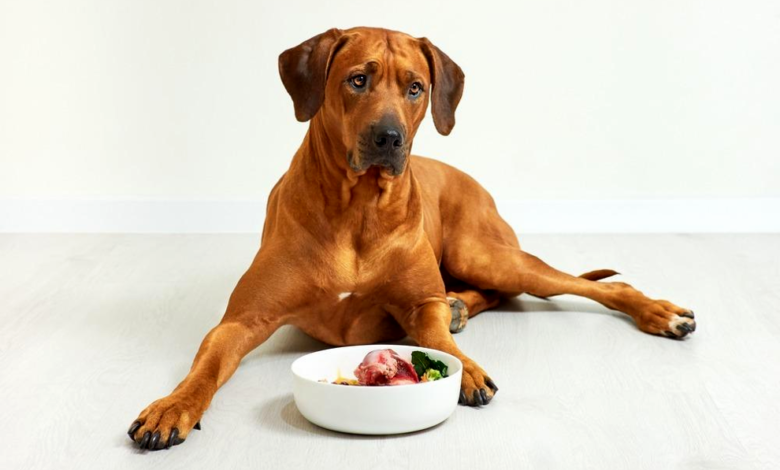
How To Improve Pets Digestion?
Our beloved pets play a significant role in our lives, offering companionship and unconditional love. As responsible pet owners, it’s essential to prioritize every aspect of their well-being, including their digestive health. In this comprehensive guide, we will explore the intricacies of enhancing your pets’ digestion, covering everything from understanding their digestive system to practical tips and holistic approaches.
Read More: 7 Tips to Prevent Dehydration in Pets
Pet Digestive System

Anatomy of a Pets Digestive System
To improve your pet’s digestion, it’s crucial to have a basic understanding of their digestive anatomy. From the moment food enters its mouth to its eventual exit, each step plays a vital role. Familiarizing yourself with this process allows for a more targeted approach to digestive health.
Key Organs Involved
The digestive system comprises key organs such as the stomach, liver, and intestines. Each organ has a specific function in breaking down food, absorbing nutrients, and expelling waste. A holistic approach to pet digestion involves ensuring the optimal functioning of these essential organs.
Signs of Poor Digestion in Pets
Common Symptoms
Recognizing signs of poor digestion is the first step toward improvement. Vomiting, diarrhea, constipation, and changes in appetite or weight can signal underlying digestive issues. Monitoring your pet’s behavior and bodily functions is crucial for early intervention.
Impact on Overall Health
Poor digestion isn’t isolated to the stomach; it can have cascading effects on your pet’s overall health. Nutrient absorption, energy levels, and immune function are all linked to a healthy digestive system. Addressing digestive issues promptly is key to maintaining your pet’s well-being.
Factors Affecting Digestive Health
Diet and Nutrition
A well-balanced diet is the foundation of good digestion. Understanding your pet’s nutritional needs, including the right balance of proteins, fibers, and essential nutrients, is pivotal. Consult with your veterinarian to tailor a diet that suits your pet’s breed, age, and health condition.
Hydration
Adequate water intake is often underestimated in its role in digestion. Hydration is essential for the proper breakdown of food and the absorption of nutrients. Discover creative ways to encourage your pet to drink more, such as using pet fountains or adding flavor to their water.
Stress and Anxiety
Pets, like humans, can experience stress and anxiety, impacting their digestive health. Changes in routine, new environments, or even loud noises can trigger stress. Implement stress-reduction techniques, such as creating a designated safe space or using calming products, to support your pet’s mental well-being.
Tips for Improving Pets Digestion
Balanced Diet
Tailoring your pet’s diet to their specific needs is paramount. A balanced diet supports proper digestion, providing the necessary nutrients for overall health. Consider consulting with a veterinary nutritionist for personalized dietary recommendations.
Regular Exercise
Physical activity is not just about maintaining a healthy weight; it also stimulates the digestive system. Regular exercise aids in bowel movements and promotes overall well-being. Engage in activities that suit your pet’s breed and energy level.
Probiotics and Digestive Supplements
Integrating probiotics into your pet’s diet can enhance their digestive health. Probiotics are beneficial bacteria that support the balance of the gut microbiome. Discuss with your veterinarian before introducing any supplements to ensure they are suitable for your pet’s individual needs.
Homemade Remedies for Digestive Issues
Pumpkin Puree
Pumpkin puree is a natural remedy for digestive issues in pets. Rich in fiber, it can help regulate bowel movements and alleviate constipation or diarrhea. Introduce small amounts into your pet’s diet under the guidance of your veterinarian.
Bone Broth
Homemade bone broth is a nutritional powerhouse. It provides essential nutrients and can be soothing to the digestive tract. Consider incorporating bone broth into your pet’s meals, especially during recovery from digestive issues.
Importance of Hydration
Water Intake for Digestive Health
Proper hydration is fundamental for digestion. Water aids in the breakdown of food and facilitates nutrient absorption. Ensure your pet has access to clean, fresh water at all times, and monitor their water intake, especially in warmer weather.
Creative Ways to Encourage Drinking
Some pets may be picky about water consumption. Experiment with different bowls, try adding ice cubes, or explore flavored water options to entice your pet. Hydration is key to preventing constipation and supporting overall digestive function.
Recognizing Allergies and Sensitivities

Common Allergens
Pets can develop allergies or sensitivities to certain foods. Common allergens include grains, dairy, and specific proteins. Identify potential triggers through an elimination diet or consult with your veterinarian for allergy testing.
Elimination Diets
In cases of suspected food sensitivities, an elimination diet can help pinpoint problematic ingredients. Gradually reintroduce components to identify the specific cause of digestive issues and tailor your pet’s diet accordingly.
The Role of Veterinarian Check-ups
Regular Health Assessments
Routine veterinary check-ups are essential for preventive care. Regular assessments allow your veterinarian to detect potential issues early, including those related to digestive health. Schedule annual check-ups to monitor your pet’s overall well-being.
Professional Advice for Digestive Issues
If your pet experiences persistent digestive issues, seek professional advice promptly. Your veterinarian can conduct thorough examinations, recommend diagnostic tests, and provide personalized treatment plans to address specific digestive concerns.
Avoiding Harmful Foods
Foods Toxic to Pets
Creating a pet-friendly environment involves awareness of foods toxic to animals. Common culprits include chocolate, onions, and grapes. Familiarize yourself with the complete list and ensure these items are inaccessible to your pet.
Scraps to Steer Clear Of
While it may be tempting to share leftovers with your pet, certain human foods can be harmful. Avoid feeding pets fatty or spicy foods, bones, and foods containing artificial sweeteners. Opt for pet-safe treats instead.
Slow Feeding Techniques
Benefits of Slow Feeding
Slow feeding has several benefits for pets, including improved digestion and reduced risk of bloating. It also encourages mental stimulation during meals. Invest in slow-feeding bowls or puzzle feeders to make mealtime more engaging for your pet.
Special Bowls and Feeders
Explore the variety of slow-feeding solutions available in the market. From maze-like bowls to interactive feeders, these tools can promote healthier eating habits and prevent digestive issues associated with fast eating.
Holistic Approaches to Digestive Health
Acupuncture
Holistic approaches, such as acupuncture, can complement traditional veterinary care. Acupuncture may help address underlying imbalances in the body and promote overall well-being, including digestive health.
Herbal Remedies
Certain herbs have digestive benefits for pets. Peppermint, chamomile, and ginger are known for their soothing properties. However, always consult with your veterinarian before introducing herbal remedies to ensure safety and efficacy.
Creating a Stress-Free Environment
Impact on Digestion
Stress can manifest physically in pets, affecting their digestive health. Create a stress-free environment by providing a secure and quiet space, especially during loud events or changes in routine.
Relaxation Techniques
Implement relaxation techniques to alleviate stress. Soft music, comforting scents, and designated quiet areas can contribute to a calm environment, positively impacting your pet’s digestion.
Case Studies

Success Stories
Real-life success stories offer valuable insights into effective strategies for improving pet digestion. These stories highlight the positive outcomes of dedicated pet owners who implemented tailored approaches.
Lessons Learned
Explore lessons learned from various cases, shedding light on the nuances of pet digestion. These lessons can guide pet owners in refining their strategies and understanding the individual needs of their furry companions.
Conclusion on Pets Digestion
Enhancing your pet’s digestion is a multifaceted journey that involves understanding their digestive system, recognizing signs of poor digestion, and implementing proactive measures. By prioritizing a balanced diet, regular exercise, and consulting with veterinarians, you can ensure your pet enjoys optimal digestive health, leading to a happier and healthier life.
Read More: Top 10 UK Pet Food Brands in 2024
FAQs
- How can I tell if my pet has digestive issues? Look for signs such as vomiting, diarrhea, or changes in behavior.
- Is a homemade diet better for my pet’s digestion? A balanced commercial diet is usually recommended, but consult your vet for personalized advice.
- Can stress really affect my pets digestion? Yes, stress can impact digestion. Creating a calm environment is beneficial.
- Are there specific breeds more prone to digestive issues? Some breeds may be more susceptible; however, individual factors play a significant role.
- What should I do if my pet’s digestion doesn’t improve with dietary changes? Consult your veterinarian for a comprehensive assessment and tailored solutions.







